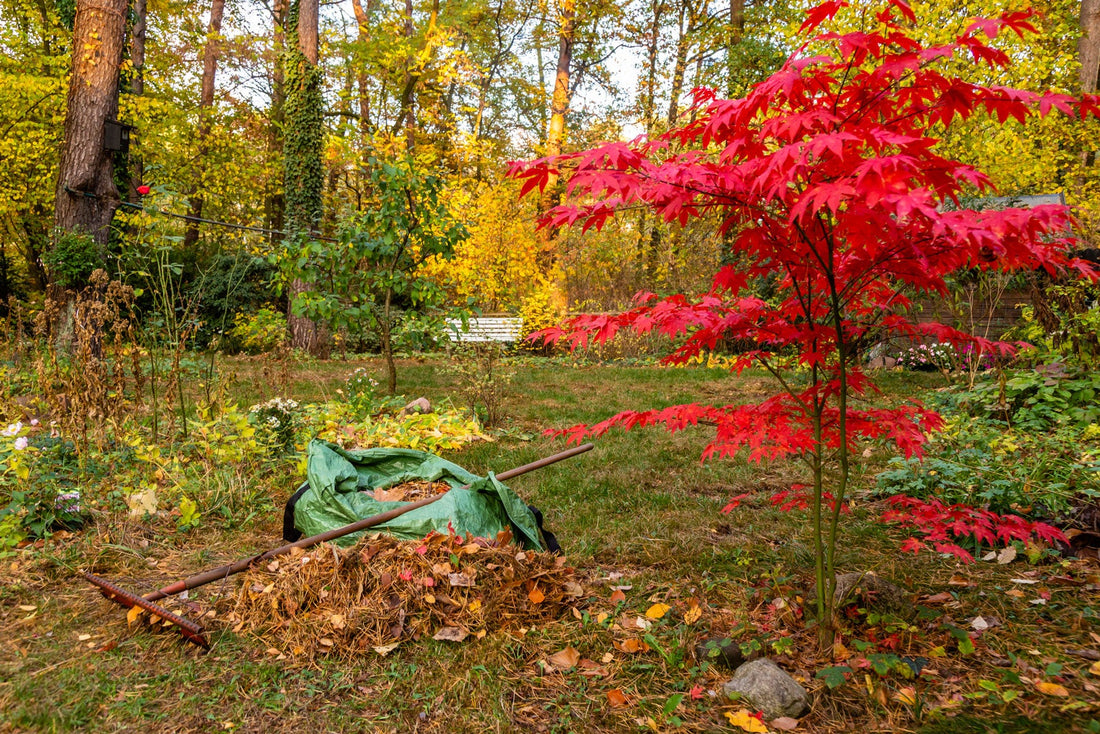
Preparing Your Garden for Winter: Essential Tips for Autumn
Share
As autumn sets in and the days get shorter, it's time to prepare your garden for the winter months ahead. Autumn is the perfect season to tackle key garden maintenance tasks that will give your plants, lawn, and soil the best chance of thriving when spring returns. One of the most effective ways to prepare is by using garden sprayers to apply the necessary treatments. In this post, we’ll cover the essential spraying tips for fertilising, pest control, moss management, and lawn care, ensuring your garden stays healthy and well-protected through winter.
- Fertilising Your Garden in Autumn
Autumn is an excellent time to apply the right fertilisers to your lawn and garden. By giving your plants a nutrient boost before winter, you help strengthen their roots, improve their resistance to cold weather, and set them up for strong growth in the spring.
Why fertilise in autumn?
- Fertilisers help promote root growth and overall plant resilience to keep strength throughout the cold and harsh winter weather.
- Applying a slow-release fertilizer in autumn ensures plants absorb essential nutrients as they prepare for dormancy.
Make sure to apply the fertiliser before the ground freezes, usually in early to mid-autumn, so plants have time to absorb the nutrients before winter sets in.
This essential step helps plants store energy for the winter and ensures a healthier, more vibrant garden come spring.
- Autumn Pest Control
Pests can still be active in autumn, looking for a place to stay over winter, which can cause problems when spring arrives. Using a sprayer to apply pest control treatments can ensure that all small spots are covered and prevent these pests from causing damage during the colder months.
We offer pest control techniques that can be applied all year round, such as for Fungus Flies, Caterpillars, and Codling Moth, as well as scatter pellets that can be used to deter animals and moles.
- Moss Control for a Healthy Lawn
Moss can be a persistent problem in gardens, especially in damp, shaded areas, and can take over your lawn if left untreated. Autumn is the ideal time to tackle moss growth before it spreads during the wetter winter months.
Why treat moss in autumn?
- Cooler temperatures and higher moisture levels encourage moss growth, making autumn a key season for controlling it.
- Treating moss in autumn gives your grass more room to grow and allows the lawn to establish stronger roots before winter.
- Grass access more nutrients and sunlight, improving its overall health.
Applying moss control in autumn ensures your lawn stays moss-free, healthy, and ready to thrive when spring arrives.
- Lawn Care: Strengthening Grass Before Winter
Your lawn requires special care in autumn to ensure it survives the winter months and regrows thick and healthy in the spring. Lawn care during autumn focuses on strengthening grass roots and minimizing any damage caused by winter frost, snow, or freezing temperatures.
Key lawn care tips for autumn:
- Aeration: Aerate your lawn to improve drainage and reduce compaction, which allows grass roots to access more oxygen and nutrients. This step is essential before applying fertilizers or moss control products.
- Overseeding: After aerating, overseed your lawn to fill in bare spots and encourage thicker grass growth.
- Liquid Fertiliser Application: As mentioned earlier, applying a slow-release liquid fertiliser with a sprayer will give the grass the nutrients it needs to strengthen its roots before winter.
How to apply autumn lawn care treatments with a sprayer:
- After aerating and overseeding, use your garden sprayer to apply liquid lawn feed or fertiliser evenly across the entire lawn. This will help the grass recover from summer stresses and prepare it for the winter ahead.
By taking these steps, your lawn will remain healthy, and you'll enjoy a lush, green lawn when the warmer months return.
- Moss Killer for Patios, Paths, and Driveways
Moss doesn't just affect lawns; it can also take over hard surfaces like patios, paths, and driveways during the damp autumn months. Using a moss killer in these areas will not only improve the appearance of your garden but also prevent slippery surfaces caused by moss growth.
How to remove moss from hard surfaces:
- Choose a Moss Killer:
- Baticlean CR: a pH neutral cleaning product which is ideal for all types of hard surfaces such as roofs (including thatched) tennis courts, paths, timber & tarmac. Simply apply Baticlean CR to a dry surface and let it work.
- Baticlean ECR: As part of our ECO-Responsibility range, Baticlean ECR does not contain any chlorinated substances or alkyl dimethyl benzyl ammonium chloride which you will find in many types of cleaning products that are designed for use on external surfaces and has an impressive coverage rate of around 100 square metres per litre. A pH neutral product that can be used with confidence on the vast majority of external surfaces including those made from wood, zinc, aluminium, plastics, glass, natural slate, roof tiles, fibre cement sheets, lacquered cladding, composite sheets, stone and bituminous surfaces amongst many others. Baticlean ECR does not require rinsing, and the treated areas can be used once the surface has dried.
- Batifast: Rapid acting cleaning for many types of hard surfaces such as roofs, patios, driveways and walls. Should be left for 10-15 minutes before rinsing. Due to its composition, Batifast will also work on damp surfaces.
- Batimust: As well as general cleaning, Batimust will remove staining from within natural stone as many types of stone surfaces, such as sandstone, can suffer from stubborn black marks as well as the more common green or yellow. This type of growth can be very hard to remove with standard cleaners however Batimust can lift the marking and help to return your surfaces to a clean condition. A 10kg container of Batimust will give an approximate coverage of between 50 - 100m2 depending upon the type of surface and level of cleaning that is required
- Batiface ECO: not only effective at cleaning and removing light staining from uPVC door and window frames but is especially good at removing the darkening and weather damage that occurs to uPVC surfaces over a period of time. If your plastic surfaces are stained with atmospheric damage, then simply spray diluted ECO over the surface a leave to act for a few minutes before wiping with a damp cloth.
- Application: Using a sprayer to apply the moss killer directly onto affected surfaces is proven to be the most effective, and simplistic method. Be sure to follow the product’s instructions, as some treatments require rinsing after application.
- Maintenance: Regularly sweep and clean hard surfaces to prevent moss from returning during the wetter months.
Conclusion
Autumn is the perfect time to prepare your garden for winter by focusing on essential tasks like fertilising, pest control, moss management, and lawn care. Using your sprayer to apply these treatments efficiently ensures that your plants, lawn, and outdoor spaces are protected and healthy when the colder weather hits. By following these autumn spraying tips, you'll set the stage for a beautiful and thriving garden next spring.
